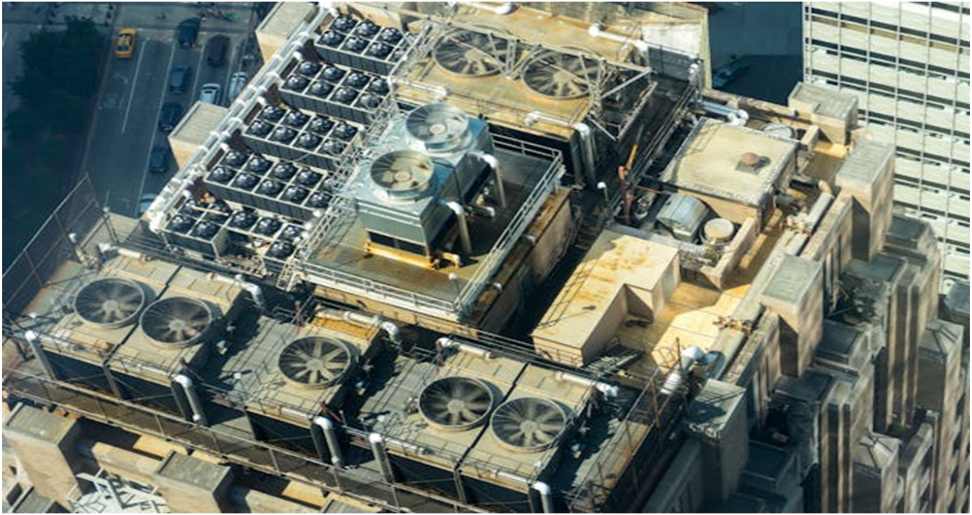In today’s commercial spaces, maintaining a comfortable and healthy environment is paramount. While temperature control is a primary function, commercial HVAC systems play a crucial, often unseen role in indoor air quality (IAQ) management. Here’s how these systems contribute to the well-being of employees, customers, and occupants within commercial buildings.
The Multifaceted Role of Commercial HVAC
Commercial HVAC systems do more than just keep buildings cool in summer and warm in winter. They actively manage IAQ through several key functions:
- Air Filtration: HVAC systems utilize filters to capture airborne contaminants like dust, pollen, allergens, and even bacteria and viruses. Regular filter changes are essential to maintain optimal filtration efficiency.
- Ventilation: A well-designed commercial hvac system ensures proper ventilation by bringing in fresh outdoor air and removing stale indoor air. This dilution process helps prevent the buildup of pollutants and creates a healthier breathing environment.
- Humidity Control: Maintaining appropriate humidity levels is crucial for IAQ. HVAC systems can regulate humidity, preventing the growth of mold and mildew, which can trigger allergies and respiratory problems.
- Thermal Comfort: Proper temperature control not only promotes comfort but also indirectly impacts IAQ. Extreme temperatures can lead to occupant discomfort and potentially weaken immune systems, making them more susceptible to airborne illnesses.
Optimizing Performance
Here’s how to ensure your commercial HVAC system operates at peak performance for optimal IAQ:
- Regular Maintenance: Schedule regular maintenance for your commercial HVAC system by qualified technicians. This includes filter changes, cleaning of coils and ductwork, and system inspections to identify potential issues that could impact air quality.
- Upgrading Filtration Systems: Consider investing in higher-efficiency air filtration systems, such as HEPA filters, to capture even more airborne contaminants and improve indoor air quality.
- Zone Control Systems: For large buildings, implementing zone control systems allows for targeted temperature and ventilation adjustments in different areas, optimizing comfort and energy efficiency.
- Building Envelope Sealing: A leaky building envelope can allow outdoor pollutants to infiltrate the indoor environment. Sealing air leaks around windows, doors, and other openings helps maintain a healthy and comfortable indoor space.
Unique Needs for Different Industries
While the core principles of IAQ management apply across various commercial spaces, specific industries might have additional considerations:
- Healthcare Facilities: Hospitals, clinics, and other healthcare settings require stricter IAQ standards to prevent the spread of airborne pathogens. HEPA filters and dedicated ventilation systems might be necessary in specific areas.
- Manufacturing Facilities: Dust, fumes, and other airborne particles can be a concern in manufacturing plants. Commercial HVAC systems in these environments might require specialized filters and increased ventilation capacity.
- Data Centers: Maintaining consistent temperature and humidity levels is crucial for the proper functioning of sensitive electronic equipment in data centers. Industrial boiler systems used for heating might require additional monitoring and maintenance to ensure clean and efficient operation.
Conclusion
Commercial HVAC systems play a vital role in creating and maintaining a healthy and productive work environment. By understanding their impact on IAQ and implementing best practices for maintenance and optimization, businesses can ensure a comfortable and healthy space for employees, customers, and occupants. So, prioritize your commercial HVAC system and reap the rewards of a clean and healthy indoor environment.
Must Read :
- Things To Do In St. Thomas
- Best Breakfast In New Orleans
- 7 Things To Do In Washington DC
- Exploring The Heart Of Music City: Things To Do In Nashville, Tennessee
- Swimming With Pigs Bahamas – How To Meet The Swimming Pigs Of The Bahamas?


